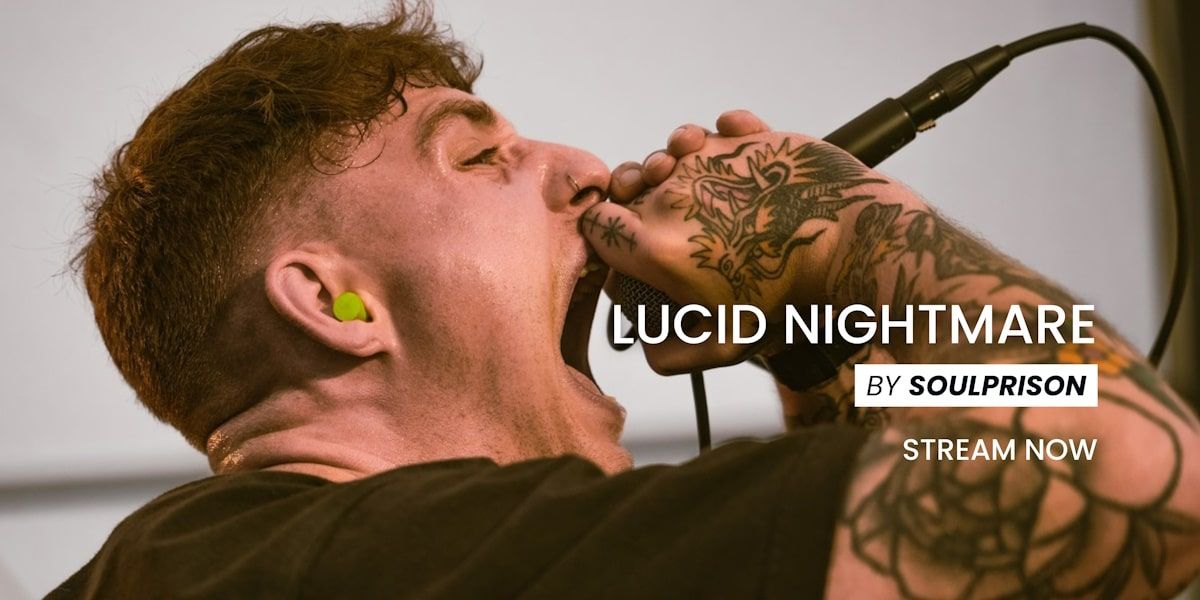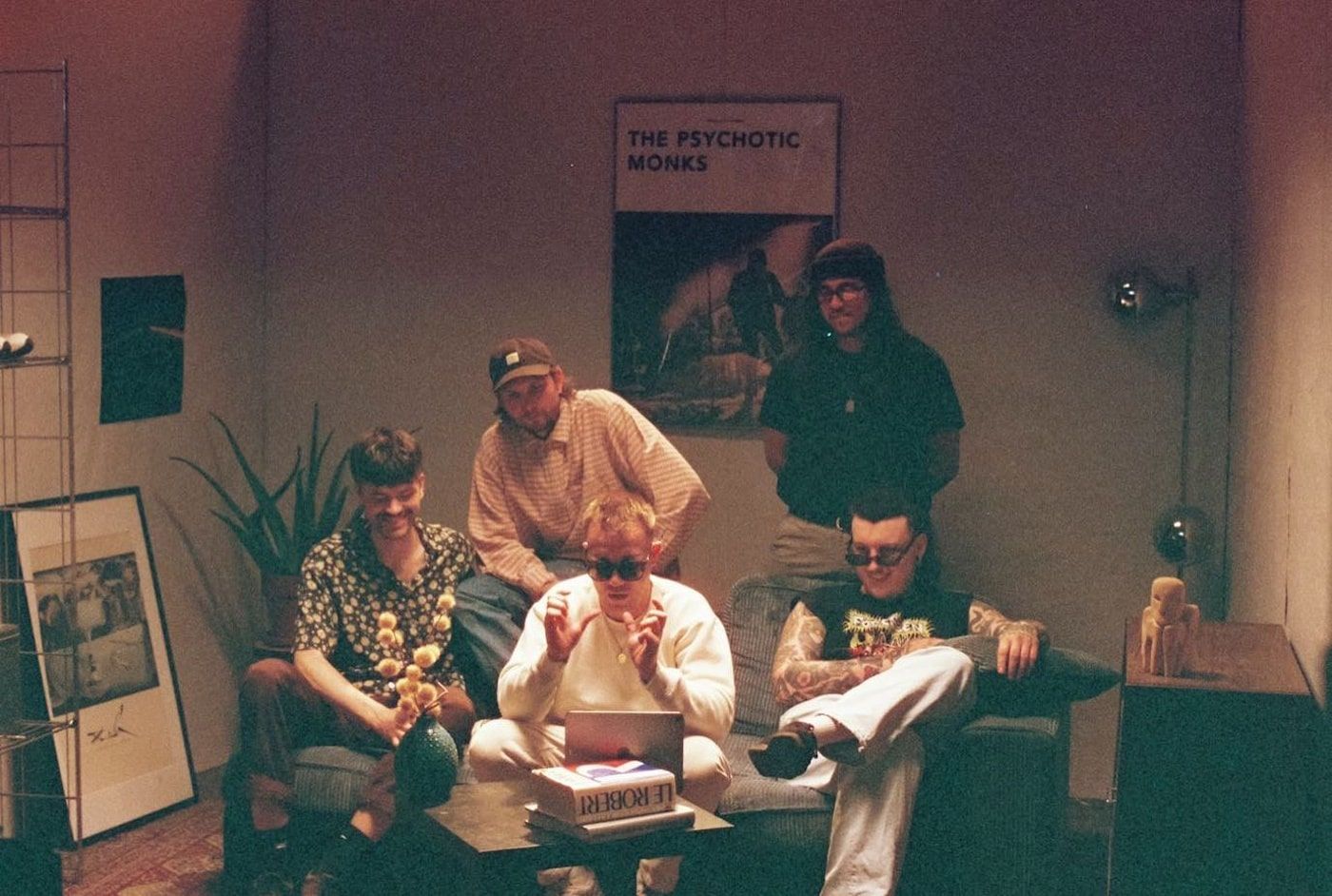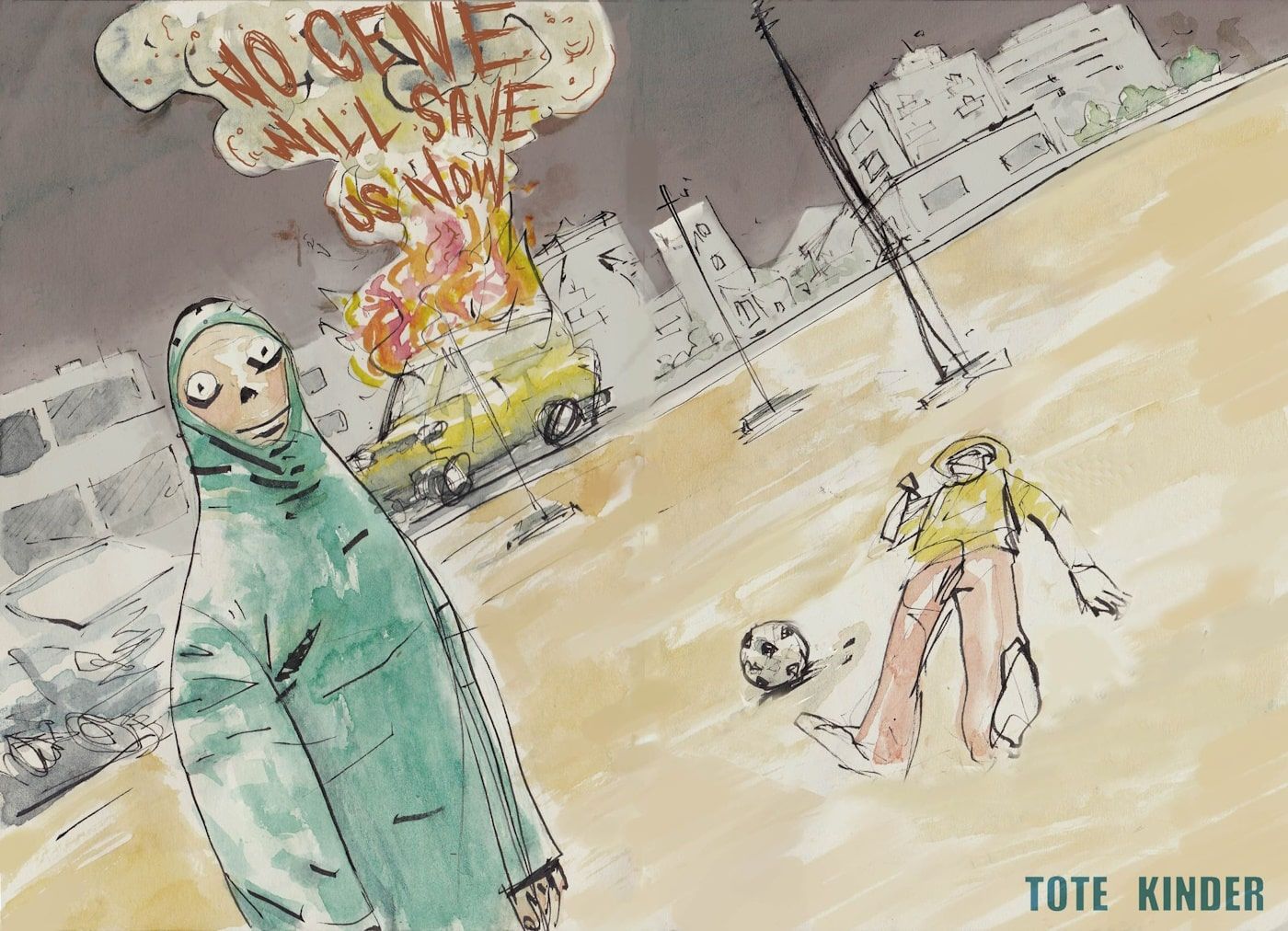When the Ernest Becker Foundation, an organization dedicated to exploring the intersection of philosophy and everyday life, reached out to HEATSEEKER, it marked the beginning of an unexpected yet fascinating collaboration. This wasn’t just a band receiving recognition for their music; it was a testament to how their latest track, “Mind’s Eye,” had resonated with the profound themes of Ernest Becker’s work.
HEATSEEKER, a powerhouse in Poland’s hardcore punk scene, has always been more than just about music. They’ve been a voice for introspection and raw expression in Warsaw’s underground community. After a five-year hiatus that sparked rumors of their demise, the band made a striking comeback, infused with renewed energy and perspective.

This resurgence is perfectly encapsulated in their latest release. The band’s lineup changes, with Paweł replacing the second guitarist Domino and Mike stepping in as the new drummer, have not only refreshed their sound but also broadened their artistic horizons. Their three-track album, expertly recorded by Michal Scibior and polished by Will Killingsworth, is now streaming on platforms like Bandcamp and Spotify, demonstrating their evolved sound and thematic depth.
Among the tracks, “Mind’s Eye,” inspired by Becker’s “The Denial of Death,” stands out for its blend of existential reflection and hardcore energy. This song, in particular, is what sparked the interest of the Ernest Becker Foundation, leading to an insightful interview facilitated by our magazine.
Another notable track, “Rest In Peace,” contemplates the ephemeral nature of the hardcore scene and the inevitability of change, reflecting the band’s matured outlook.
This feature delves into HEATSEEKER’s response to the Foundation’s curiosity about their engagement with Becker’s ideas, their creative process, and their views on human potential amidst societal strife.
It offers a unique glimpse into how a hardcore band from Warsaw is making philosophical waves, challenging norms, and leaving an indelible mark on both the music and intellectual world.
Read the full interview with Maciek Wolański of Heatseeker below.

How did you first discover Ernest Becker’s work and what were your initial thoughts/impressions?
Two decades ago, my first exposure to Ernest Becker‘s work happened through the pages of a punk fanzine titled “Krzyk to za mało” (Scream is Not Enough). In an interview with Greg Bennick, the lead singer of a Seattle’s hardcore band Trial and co-creator of the film “Flight from Death: The Quest for Immortality” Becker‘s ideas were presented with a clarity and brilliance that immediately intrigued me. The impact lingered, prompting me to later delve into the mentioned documentary film, refreshing the profound themes it explored.
It wasn’t until 2016 that the first translation of Becker’s book “The Denial of Death” into Polish became available, an opportunity I eagerly seized. Upon reading it, I was once again struck by the lucidity and simplicity of Becker’s ideas. They resonated with me on an almost intuitive level, encapsulating many of my own reflections on mortality and the driving forces behind human actions. Becker’s words provided a clear explanation, shedding light on aspects I had grappled with in my own thoughts.
One aspect that particularly captivated me was the section delving into humanity’s place in nature, offering a critique of Nietzsche’s concept of the Übermensch (Overman). The portrayal of humans as self-conscious animals and the profound existential dread that arises from this awareness struck a chord with me, providing enlightening perspectives on the human experience.
What made you decide to create a track inspired by Becker’s work?
Ever since I acquainted myself with these ideas, they have taken residence within me, a constant presence in my thoughts. Gradually, they have woven themselves into the fabric of my character, becoming a crucial key to understanding those around me. This integration has granted me the ability (or at least that’s what I’d like to believe) to view the actions of others through a lens of compassion rather than immediate judgment.
As I crafted these lyrics, my intention wasn’t to convey any specific doctrine but rather to keenly observe the world unfolding around me. It led me to reflect on the trajectory of my country and the entire European Union from a political perspective. We find ourselves in an era of instability, where people often seek refuge in the allure of populist politics and cling to ethnic and religious affiliations. We’re not at the end of history, as Fukuyama argued in the 90s, but rather somewhere near its beginning. Instances like the bombing of Gaza serve as compelling examples of this assertion.

What has been the reception of the song so far – have you run into any other Becker fans?
The reception so far has been overwhelmingly good so far; we’re receiving many positive signals. Unfortunately, in the country where I live (which is Poland by the way), Becker’s work is relatively unknown. Nobody I’ve spoken to about Becker was familiar with his creations before. I don’t hide my inspirations, but I also don’t try to make them the main focus of what I/we do.
You state in the lyrics, “you’ll never be able to reach / potential that lays in your grasp” due to the “fighting and dividing” – in your opinion, what do you think is necessary to reach our full potential and stop fighting?
This is a complex and multifaceted issue with no one-size-fits-all solution. A challenging journey lies ahead, not only for us but for our descendants. These are challenges that the next few generations will grapple with. While it might seem like wishful thinking, if we truly want to effect change, we must adopt a long-term perspective—I mean, really long. Yet, we’re well aware that long-term thinking has never been humanity’s strong suit.
Most futuristic visions tend to be polarized into either gloomily apocalyptic or hyper-optimistic scenarios. Considering the human factor, I have the impression that there lies a path somewhere in between.

To unlock one’s full potential and mitigate conflicts, individuals and societies may need to emphasize empathy, understanding, and cooperation. Addressing the root causes of conflicts, such as economic disparities, social injustices, and misunderstandings, becomes essential. Promoting education, communication, and peaceful dispute resolution can contribute significantly to personal and societal growth, fostering harmony. We can only do so much, and relying on a positive outcome of our efforts may not sound enticing—it might even seem a bit naive. However, the truth is often not as glamorous as we’d like to imagine.
Want to keep the beat going?
IDIOTEQ is a one-man DIY operation, tirelessly spotlighting the local cultural scenes and independent bands that often go unreported elsewhere. Born in the early 00s, this platform has been committed to giving hard-working artists the high-quality coverage they truly deserve.
No ads, no distractions—just pure inspiration and a genuine focus on independent artists and their stories.
Please consider helping keep IDIOTEQ ad-free and in tune with the indie scene by donating today.
Check out the new high energy banger from SOULPRISON:
🔔 Check out “In Shorts” – our Quick News Channel on 👉Messenger and 👉 WhatsApp 🗞️
https://m.me/j/AbY4Tz2hZlpP8Plk/













